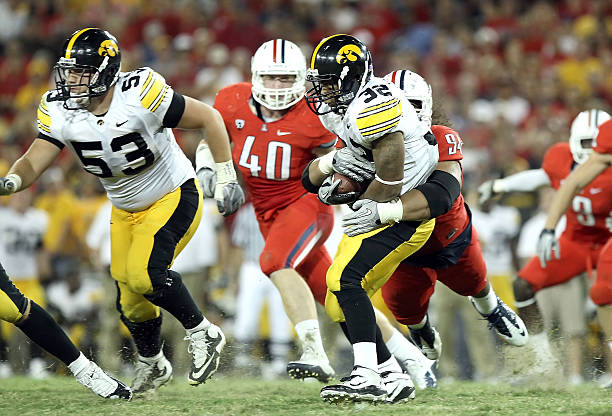15,000 doors knocked.
But in 2014, Democrats up and down the ballot lost—including Billy Kovacs’s friend who ran for state legislature. Billy managed the campaign, but in an election dominated by Republicans, even their impressive ground game was not enough to win.
Two years later, Kovacs wants another try, but this time it is as a candidate for the U.S. House of Representatives in Arizona’s 2nd district.
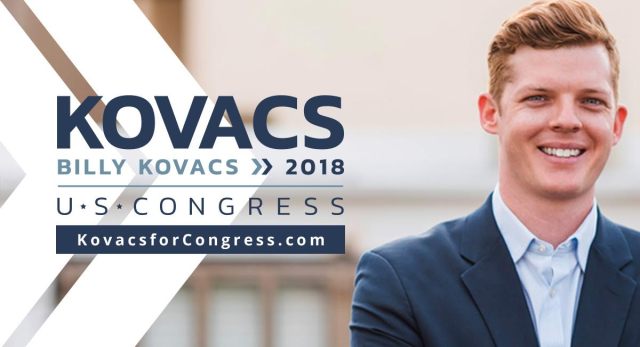
Kovacs attended public school his whole life and studied at a local community college and at the University of Arizona, where he got an early start as an entrepreneur in the tech marketing world. Through his work in the Tucson market’s start-up scene, he earned a contract with the University of Arizona as an ambassador focused on retaining young, talented workers to live and work in the area after graduation, as young adult flight represents a major issue in this district. However, Kovacs’s business experience is not limited to tech—his family owns a farm in the southern part of the district and he turned $15,000 of seed money into a $1.5 million per year restaurant. Kovacs’s interest and resume for starting and growing small businesses, followed by his stint managing his friend’s campaign in 2014, introduced him to folks all across the district that share his goals and ideas for growing the local economy.
Inspired to improve his local community, Kovacs applied for and subsequently attended a civic leadership program in Phoenix that educates 36 people each year to know Arizona’s key issues in depth. This program forced Democrats, Republicans, and Independents to work together on solutions to these problems, and Kovacs relayed his experience in Tucson’s business community to reach solutions with his counterparts from different perspectives.
The 2016 election instilled a sense of civic duty in Kovacs to run for office. Bernie Sanders’s inspirational campaign and message to get involved combined with Kovacs’s passion for local issues and for his fellow southern Arizonans convinced him that now was the time to invest his life savings in a campaign for Congress.
Josh and Sam spoke with Billy about his campaign, life in a southwestern purple state, and issues that continue to be relevant to Arizonans.
This interview has been edited for length and clarity.
1. Josh Martin (JM): In a crowded field of six Democrats running in AZ-2, you are the most well-known candidate who has zero prior political experience. Why did you decide to run for U.S. House?
Billy Kovacs (BK): The winner of this race should not only be the federal representative for Arizona’s second district—they should be a bridge to the local community. Martha McSally [the current Republican representative of this district] and Ron Barber [the Democrat who preceded McSally) did not focus enough on local issues and true, local representation in Congress. I want to connect our cities and counties to other progressive local and state governments so that they can share ideas and best practices. We can bring more to the table for our residents by building such a coalition; similarly, we can go after federal funding, which is not widely talked about. I know what my district needs, and I will have eyes on these programs that could achieve goals at home for all types of businesses. I have done this already through a business I started that helped folks apply for federal grants. While other candidates have experience in state and federal government they don’t know where the inputs and outputs are. I can talk three tiers down on which community members would be interested in each funding program and why they would be good candidates.
JM: Did you consider running for state legislature or local government instead?
BK: Arizona is rated one of the most corrupt states for politics, and to get things done in state government is hard as a current Democrat. If I ran and won in state government I would be in the minority that couldn’t get anything done with the legislature or the Republican governor, so I want to advocate top-down to change things in Arizona. I see the federal role as a quicker, more effective route to helping my district.
2. JM: Ann Kirkpatrick represented AZ-1 for six years, and while she lost to McCain for the Arizona Senate seat in 2016, she performed better than any of his previous Democratic challengers. Now that she has moved to your district, she is the most well-known Democrat running in your primary and has picked up endorsements from EMILY’s List and former district representatives Gabby Giffords and Ron Barber. What sets you apart from Kirkpatrick, and why should Arizona Democrats rally to your side instead?
BK: We are in a six way primary. I can look from the candidate’s perspective by looking at endorsements, or I can look from the electorate’s perspective. I don’t agree with Ann on every vote she has taken but I think she was a great representative for AZ-1, and she will definitely have the establishment endorsements and support from Washington but I am talking about our district here in southern Arizona and the need for new leadership. Kirkpatrick cannot speak as well to local topics because she does not know Pima and Cochise counties like I do. My message of local representation and new leadership will resonate with these voters. She will beat me in big donor fundraising (I’m a realist), but I can beat her in the ground game and grassroots support. I am determined to get Democrats and Independents who have never primaried before to turn out and to encourage Republicans to cross the aisle and support me.
3. Sam Wettach (SW): You pointed out that you’re aiming to get people who have never primaried for a Democrat, including independents and western, progressive Republicans. Could you provide a brief description of a western progressive Republican?
BK: Moderate Republicans in Arizona who are stunned by what President Trump is doing. A western progressive Republican is fiscally conservative but will compromise with you. They have families, care about the future, and are alarmed at the volatility of national politics. Additionally, the number of independents is climbing as folks leave the two main parties—Arizonans are free thinkers that often don’t vote party line.
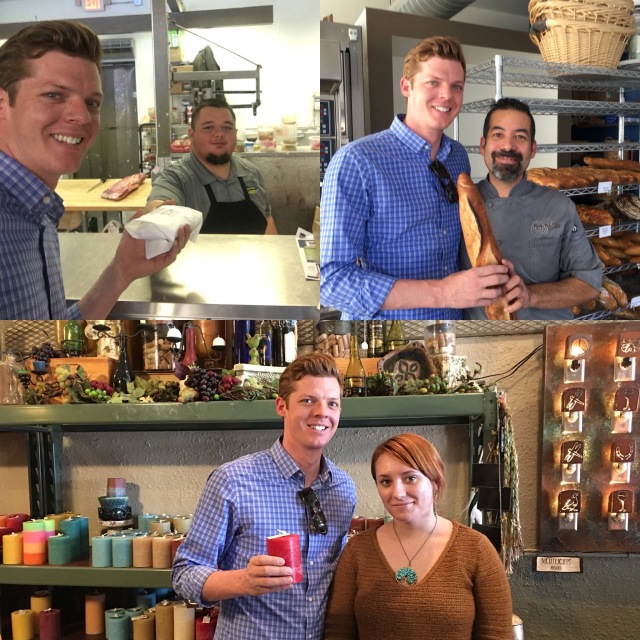
4. SW: Already during your campaign you have met with 500 small businesses in your district (such as the butcher, the baker, and the candlestick maker seen above). What is your plan for cultivating the growth of small businesses in Southern Arizona?
BK: I mentor for the University of Arizona and for the Arizona Hispanic Chamber of Commerce to help youth start businesses that often focus on STEM and tech in the Southwest, so I am already familiar with what it takes to grow business here. That said, we currently do not have a workforce that is educated enough for the jobs of the future. We need tuition-free schooling for universities and technical programs that are two-year programs. At the moment we are going the other direction with education funding–one of the biggest community colleges in our district had its state funding cut by $200 million. I want to increase funding to these critical community colleges.
I also want to push for Medicare for All. Government should pay for this, and that opens the way to pay employees more by removing an employer’s obligation to provide health insurance. We need to help new businesses work through their start up years, too. For example, the program Scale Up America provided funding to a group named Start Up Tucson, which incubates businesses and brings promising folks to Tucson to scale up their businesses. The $300,000 investment generated over $7 million and 75 jobs in Tucson. Even though it clearly succeeded in this instance, Scale Up America lost funding from the U.S. Small Business Association recently. This program generated a huge economic impact and I support programs like this that bring federal dollars to communities.
Concerning rural towns, we need to make sure we support small businesses in these towns by focusing on green technology and becoming the solar capital of the world. Unfortunately, the Arizona state government corporation commission is bought by anti-solar interests, so we need federal oversight to keep watch at the state level to ensure that Arizona becomes the national leader in solar energy. Next generation jobs in rural counties are key to economic stability in Arizona. My parents and I have a functioning farm in rural southern Arizona, and I baled alfalfa hay in Washington State as a kid. I know the rural towns in our district firsthand, not just where they are, and I don’t fake knowing what rural life is as a campaign tactic. I can point people to where I live just down the road. I can show you how to operate a tractor and put a tire on a combine. It’s not just farming that people like in rural America—it’s the way of life, and we should respect them more for that.
5. SW: As a pro-business Democrat, how would you ensure the fair taxation of American businesses while also supporting progressive tax reform?
BK: We are taxed in so many ways, but we need to not be so micro-focused in our approaches to tax cuts. When we look at a macro level and find the big gaping hole in the boat, we see dollars pushed overseas by corporations to the tune of hundreds of billions of dollars. If we can focus on corporate taxes and then work back to small businesses, then we can succeed. This is not a hundred day plan— we have to look at inputs and outputs of the tax system in a bipartisan way. We do not need to lower corporate taxes—we need to stop that money from going overseas through loopholes. And, we need to back up big ideas with plans to enact them.

6. JM: Comprehensive immigration reform continues to be a goal of Democrats nationwide, and as a district located on the border, it is a particularly prescient issue to Southern Arizona. What should be included in such a reform, and what should Democrats consider deal-breakers?
BK: When my family moved to our farm in southern Arizona, 35 miles from the border, we surveyed the land and cleaned it up. During that effort we found backpacks, clothes, and plenty of other belongings to immigrants who passed through the area. We need to treat these immigrants as neighbors. Communities near the border are the sweetest, most compassionate people you will meet, and we should learn lessons on empathy from them.
They call it “comprehensive immigration reform” because it is truly huge. My district is home to a massive border trade area, the Douglas Port of Entry. Produce, goods, and services go through the port at a valuation rate of $1 million per minute. This trade is a huge economic driver in our cross-border relationship with Mexico. While we need those doors open to trade and closed to criminal activity, our focus should be on increasing border and customs technology instead of increasing border patrol. Such an investment would cut the time trucks and goods spend at these ports and would facilitate even more trade and economic activity as companies will continue using this port because it’s the most efficient. That said, more trade will not fix immigration on its own. Many immigrants cross the border seeking economic opportunity and then take under the table jobs from corporations that pay less than minimum wage. We need to help them stand up to corporations and ensure fair employment processes for all.
Douglas, in Arizona, and Agua Prieta, in Mexico, have been a single community for a thousand years. In fact, we have four thousand years of agricultural history in Tucson, which led to its designation as the first UNESCO City of Gastronomy in the country. Families on both sides of the Douglas/Agua Prieta border in small adobe houses need to be safe and to be able to visit friends and families on both sides in order to keep the community intact.
This brings us to Trump’s stance on DACA—we have 27,000 DACA recipients, each of whom pay $500 per year to renew the program, totaling millions of dollars per year to stay in America. And while DACA needs protection and should be celebrated, we cannot stop there. We need a path to citizenship for all undocumented immigrants. If all of them had a job and paid taxes it would bring billions of dollars into our economy and would help ease internationally split families, bringing them out of the shadows. This will be a tough road, but we need to do it.
Further, while we consider approaches to addressing immigration, we have to keep in mind a few other key issues. First, we must acknowledge the sovereignty of Native American tribes along the way. We need to stay off their land and let them govern themselves. Second, the ecological impact of a wall would devastate the migratory patterns and habitats of endangered species like the desert jaguar.
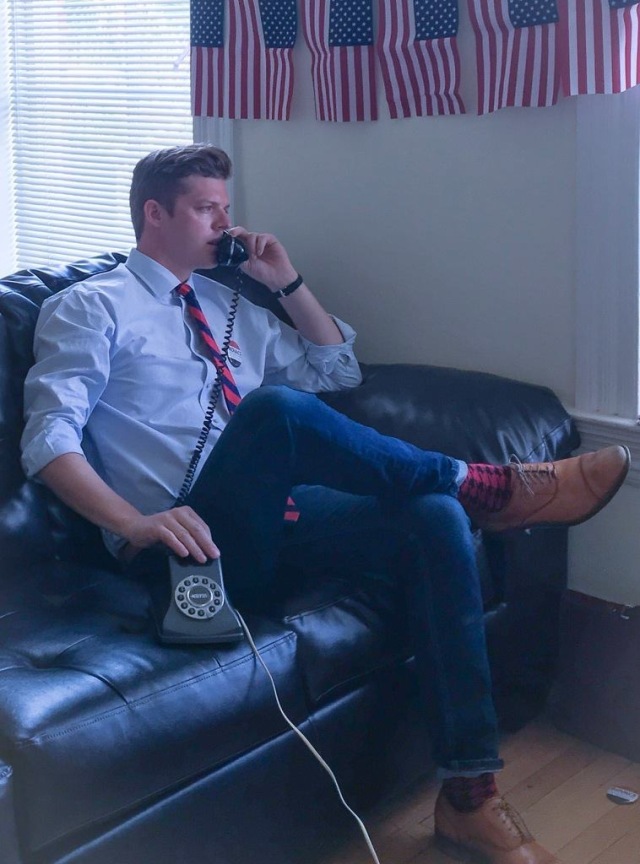
7. JM: How do you view international trade agreements like NAFTA and TPP and how do they affect Arizonans?
BK: I am firmly against the Trump administration terminating our role in NAFTA. NAFTA injects billions of dollars into our state’s economy. It is essential for many Arizona jobs and businesses. Strengthening international business relationships will be vital as the world grows closer together. In Arizona we have key land ports like the Douglas Port and the Port of Tucson, which has increased trade each year. NAFTA helps the connection between our trading partners to the north and south, which is vital to the success of these ports.
As for TPP, I oppose this trade agreement. It needs a lot of changes and more protections for workers and the environment. I will be against TPP until these revisions and protections are put into place.
8. SW: You have voiced your opposition to the proposed Rosemont copper mine in the past, citing the environmental impact it would have on your district. How do you balance environmental externalities with being pro-business, when the two can often conflict?
BK: I love that you, in Wisconsin, learned about Rosemont Copper! They were going to bring fifteen thousand jobs to my district, but they want to blow up half a Santa Rita mountain in the process. However, when reviewing the short-term vs long-term benefits and consequences, it doesn’t make sense. Ecological damage to the aquifer would take centuries to fix. We need to balance economic opportunism with long-term conservation to ensure well-rounded success in the area. I get heat for my opposition to the mine all the time; I know their lobbyist, and we argue all the time.
Two top things the world will have to deal with in the next century are overpopulation and water supply. We are kicking the can down the road if we don’t consider water supply in all decisions, especially within Arizona. I was taught by Noam Chomsky on this topic; we need to learn to say no to companies.

9. SW: Democrats nationwide continue to divide themselves by 2016 primary lines. How do you view these ongoing debates within the party, and if elected, would you support Nancy Pelosi to continue as the Democratic leader in the House?
BK: The divide has been happening for longer than just the 2016 cycle. It has been growing in the complacent nature of the Democratic Party as we lost seats in the U.S. House, state legislatures, and city councils up and down the ballot because we don’t remember who we are. We don’t stand up for the issues we believe in anymore. We don’t stand up to the Rosemont Coppers of the world anymore. I think people are waiting for that, and I honestly believe we will see it this election. We have more progressive candidates running that question the status quo and party leadership. We can change the Democratic Party. The party has a long way to go, and the DCCC and DSCC need to recognize their flaws and stop running the same candidates before people flock even more to independents. It is not about being the other guy (compared to the Republicans), it is about knowing the issues, being hyper-local, and knowing what your district wants. If we do that, we can build the Democratic Party back to what it once was.
If there was a candidate willing to challenge Pelosi, I am open to hearing about their views and goals for the Democratic Party. I would like to hear more about Seth Moulton or others looking to bring a new generation of leadership to our Party leadership and push back on the current status quo within the Democratic Party. We will have to ruffle feathers, but the party needs internal debates on topics like policy and leadership.
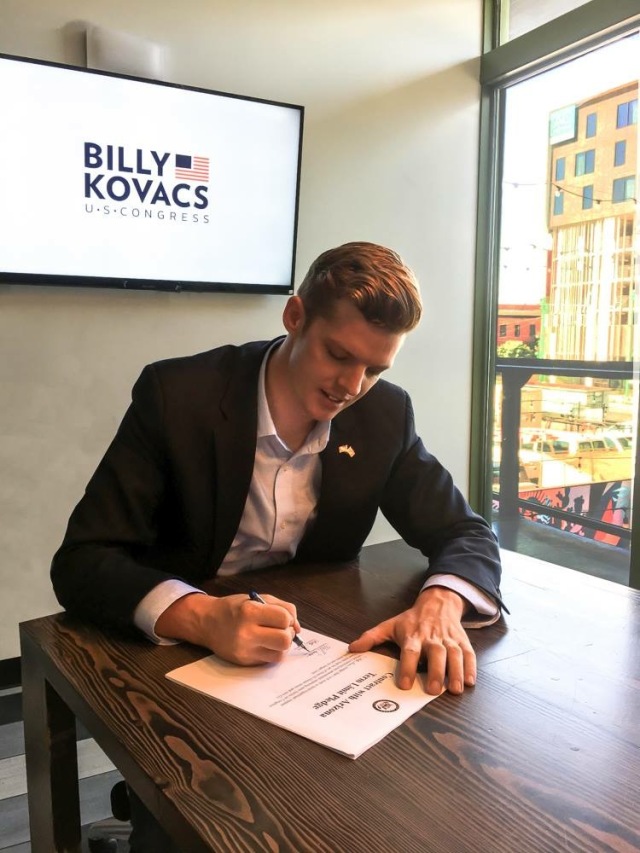
10. SW: You signed a pledge to self-impose an eight year term-limit in the House of Representatives (pledge signing pictured above). Should term limits play a larger role in federal government and/or in the Supreme Court?
BK: I took the pledge because we do not need a thirty-year representative who has not done anything and gets comfortable. We can effect change in eight years by being a driver of ideas, not just by sponsoring a bill. If you cannot get anything done in eight years then what the hell were you doing for eight years? That is a lot of time to get things accomplished, and not everything needs to have your name on it. Further, I might want to explore other options in public service after I have served eight years in the House. If I can make a difference and make life better for my fellow Arizonans and Americans I am open to that. We will have a lot of smart, young, talented people coming through the ranks, and I want to pass the baton onto these candidates from a position where I can help them. I also want to push capacity down the ballot so that young progressives can run for state government and city council.
Thinking more broadly, we need to change how elections are done now. Gerrymandering prevents elections from being the check on officials. Arizona has an independent redistricting committee, so our district lines are okay, but we fight voter suppression all over Arizona as polling stations decrease in number and registration becomes more difficult. For example, if you are an independent in Arizona who wants to vote in a primary, you have to re-register every year in order to get your ballot.
I never thought of term limiting the Supreme Court—that’s a hard one. It is especially difficult considering that we are dealing with the aging out of justices right now.
11. JM: Retail jobs are disappearing at an alarming rate, and many displaced workers lack a clear direction to regain employment. This phenomenon will be augmented by technological automation and the continued globalization and digitization of American consumerism. What policies would you support to combat such economic disruption?
BK: This is a tough topic. The scale of businesses that are being affected by global commerce like Amazon is massive. Amazon made access better, and I am not faulting them for that, but we need to react. Realistically, as a freshman Congressperson I would be blowing smoke and would likely not be able to enact change in this arena, but I can push local businesses to scale up to compete with these tech giants. Creative strategies to encourage small businesses are crucial in this dynamic economy.
Spending on infrastructure can help ease this job loss, too. By investing in roads, construction, and repairing what we already use, we can provide jobs to folks who are being automated out of the labor market. However, we should avoid building more outlet malls; instead, we should renovate historic buildings and revitalize Main Street through a hyperlocal focus.
a. An increasingly common answer to automation coming from folks like Keith Ellison and Elon Musk is to adopt a universal basic income to ensure an income floor for all Americans. Would you support a universal basic income as an insurance policy for displaced workers?
BK: If we were 20 years in the future, I think there would be more capacity to support a universal basic income. It is a great idea, but I don’t know what it looks like today nor how you fund it. In general, social safety nets are crucial as we erode industries left and right with automation.
I worked with a team three years ago on the tech used by Amazon/Whole Foods grocery stores to allow you to shop without talking to anyone. The Amazons of the world can get away with this by identifying industries that have not innovated enough. We should not fault them for successfully competing in these areas, but we need to be ready for it. One way to prepare is to educate the workforce of tomorrow to prep for jobs down the road.
More broadly, though, Democrats have to realign our ideals to include big ideas like UBI, infrastructure revitalization, high speed rail, and green innovations.
12. Were you at Iowa at Arizona football game in 2010 that broke our hearts (note: for those who don’t know, Josh and Sam are diehard Iowa Hawkeye fans)?
BK: Yeah, I’m sorry about that, but it was a great game!
